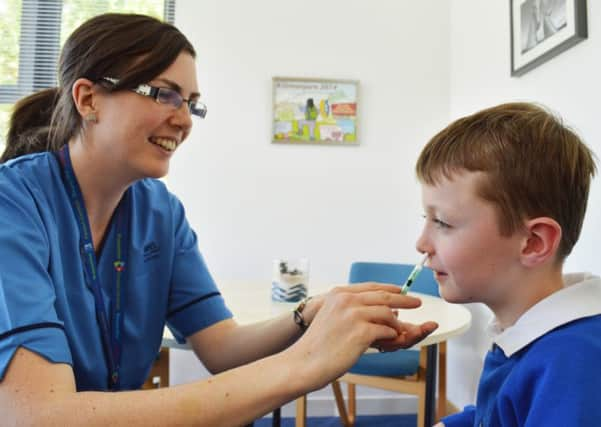Don’t believe urban myth about flu vaccine, it could save your life – Dr Catherine Calderwood


The vaccine will be offered to around 2.5 million people this year and remains the best defence against the disease. It is important to be vaccinated every year because this virus is clever. It changes constantly and your immunity reduces over time.
Flu is very infectious and can spread quickly throughout a household. Every year thousands of children are hospitalised and even healthy children can become seriously ill from it. Children aged two to 11 are offered the free vaccine. Protecting children can also stop the infection spreading to family, friends and others.
Advertisement
Hide AdAdvertisement
Hide AdTo date more than 1.6 million doses of the nasal vaccine have been given to two-11-year-olds as part of the Scottish childhood immunisation programme. But more parents and carers need to take up the offer for their child to be vaccinated to protect public health.
The good news is that for the majority of children, the vaccine is given as a painless nasal spray. Getting the vaccine only takes a few minutes, and takes around ten days to work.
Importantly, the Scottish evidence available to us shows that the nasal vaccine has reduced the risk of hospitalisation in children who get it.
Every year in Scotland, two thirds of people who end up in intensive care because of flu have a health condition and those people are 18 times more likely to die from it than those without a health condition.
Vaccine doesn’t give you flu
Those most at risk of developing complications – and therefore eligible to receive the free vaccine – include those aged 65 and over, those with health conditions such as breathing problems, diabetes and heart or kidney conditions as well as pregnant women.
Even if you feel fit and well, with your condition well managed, it is still a good idea to take up the offer of vaccination. Doing this is the safest and most effective way to help protect not only yourself but those around you and this is why the vaccine is also offered to NHS employees involved in the delivery of care.
Those working in healthcare are more likely to be exposed to flu compared to the general population, given they are more likely to come into contact with people who have been infected.
We have a professional responsibility to protect the patients we care for which is why I received my flu vaccination recently to help to protect the pregnant women I see in my antenatal clinic.
Advertisement
Hide AdAdvertisement
Hide AdOne of the common misconceptions around the vaccine that I often hear is that it can give you the flu – this is not the case.
Possible side effects tend to be very mild. You may get a sore arm at the site of the injection or a temperature a day or two after, but this is nothing compared to catching the disease itself.
You can find factual information about vaccines provided by the NHS at flufacts.scot or ask your health professional. Have your flu jab if you are eligible and reduce your chances of ending up in your own bed with flu or worse still in a hospital bed very seriously unwell. It works!
Catherine Calderwood is Scotland’s Chief Medical Officer and she is grateful to Sarah Dillon of the Scottish Government’s Population Health Improvement Directorate for her contribution to this article.
